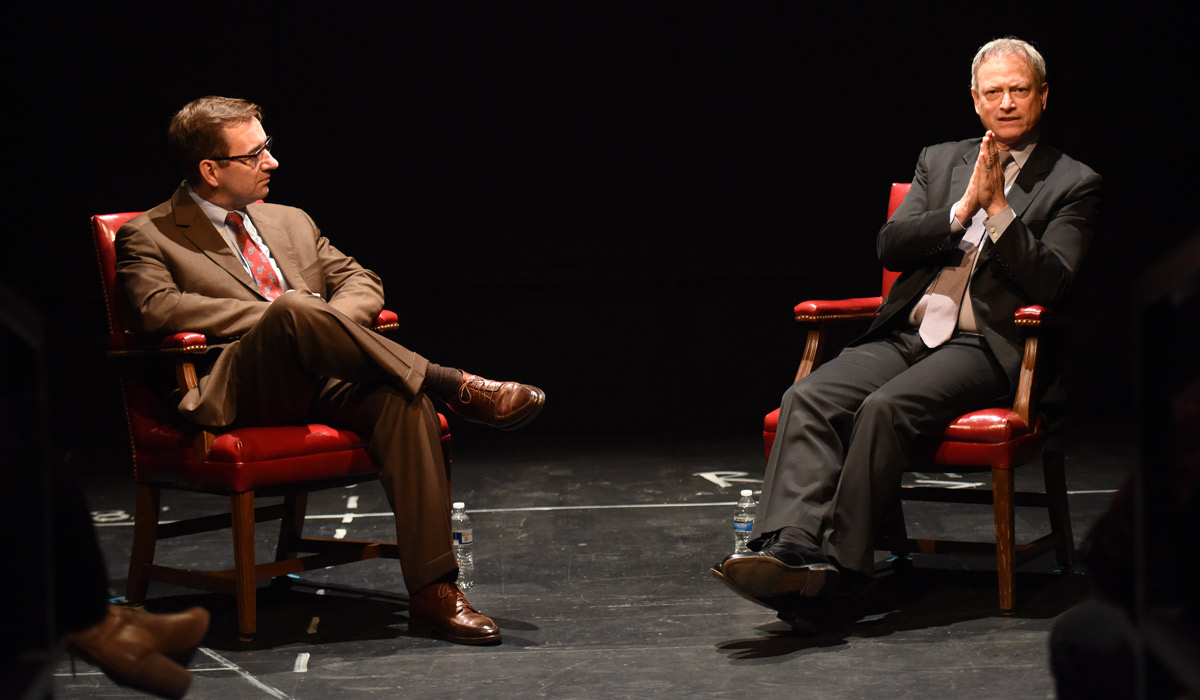The field of Drama combines the academic study of the history, theory, and literature of theatrical performance with practical work in the techniques for creating theatre. As do other branches of liberal education, the department opens to its students a particular avenue of access to cultural traditions, and acquaints them with some of humankind’s most notable attempts to order its experience and understand itself within a larger scheme. By nature a collaborative and multidisciplinary enterprise, the dramatic arts benefit greatly from association with the liberal arts and sciences.
An appropriate curriculum in the dramatic arts is a liberal arts education in microcosm. Studies within this department are interdisciplinary in nature, and the faculty encourage students to combine these studies with a full spectrum of coursework in various departments of the College of Arts and Sciences. In addition to the required courses for the Drama major, further study in the areas of literature, history, design, music, the visual arts, languages, psychology, anthropology, physiology, sociology, and physics, for example, is suggested. Such study provides students with a greater understanding of the contributions of these disciplines to the field of dramatic arts, and prepares them for fruitful careers, graduate study, or the professional theatre.
The department includes a core of regularly offered courses that encompasses the diverse areas of scholarship and artistry in theatre studies. An array of Topics courses in theatre and dramatic literature, as well as occasional Guest Artist residencies, supplement this core. By providing students with a foundation in both the theoretical and the practical dimensions of theatre, the department nourishes scholars and artists whose work benefits from the reciprocal enrichments of these curricula. A synthesis of the scholarly with the artistic enhances both facets of theatre: a background in literature and historical research enriches the practicing theatre artist, and pragmatic insights stimulate the appreciation of the theoretical. Coursework in the department enables students to synthesize idea and image, mind and body, the individual and the group; it encourages them to connect the intellectual with the intuitive, the verbal with the physical, the scholarly with the artistic, the historical with the immediate, and the aural with the visual.
Departmental Goals
- To balance and synthesize the scholarly (history, literature, theory, criticism) and the practical (acting, directing, movement, design, technical theatre) components of the curriculum.
- To encompass and build on an array of disciplines that reflects the liberal arts ethos of the University.
- To inculcate students in the pluralistic cultural and performance traditions of world theatre.
- To provide students with the knowledge, skills, and attitudes for future achievement in the profession or related fields.
- To nurture students as individuals and to prepare them to reach their highest potential.
- To promote reciprocity between departmental productions and classroom studies.
- To involve students in theatrical productions that represent a range of historical periods, theatrical styles, cultural traditions, and subject matters.
Of particular interest to this department is a continuing effort to promote cultural diversity in its courses, in its productions, and in the community.

